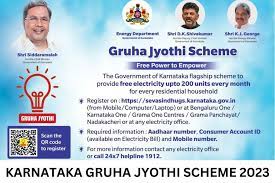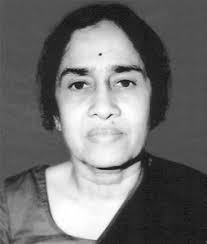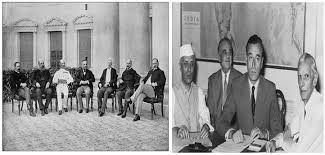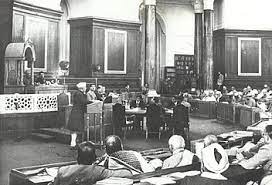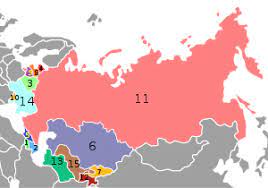Before India gained independence from British rule in 1947, several notable British governors and governor-generals served in different capacities in India. Here are some of the notable works and contributions of British governors and governor-generals before independence:
1. Warren Hastings (1773-1785): As the first Governor-General of Bengal, Hastings implemented administrative and judicial reforms, established a system of revenue collection, and played a key role in the consolidation of British territories in India.
2. Lord Cornwallis (1786-1793): Cornwallis introduced the Permanent Settlement in Bengal, which aimed to stabilize land revenue and establish a system of property rights. He also initiated the process of codifying laws in India through the creation of the Cornwallis Code.
3. Lord William Bentinck (1828-1835): Bentinck is known for his administrative and social reforms. He abolished sati (the practice of widows self-immolating on their husband’s funeral pyres), suppressed thuggee (organized crime involving robbery and murder), and promoted Western education in India.
4. Lord Dalhousie (1848-1856): Dalhousie’s tenure as Governor-General witnessed significant modernization efforts. He introduced the railway network, telegraph lines, and the postage stamp system. He also annexed territories through the Doctrine of Lapse and promoted English education.
5. Lord Canning (1856-1862): Canning served as the last Governor-General of India and the first Viceroy after the Indian Rebellion of 1857. He played a crucial role in the aftermath of the rebellion, reorganizing the administration, and initiating reforms to improve governance and promote infrastructure development.
6. Lord Curzon (1899-1905): Curzon focused on administrative and educational reforms. He established the Archaeological Survey of India, introduced the Indian Universities Act, and created the partition of Bengal, which led to widespread protests and political mobilization.
These are just a few examples of the notable works and contributions of British governors and governor-generals before India gained independence. Each of them played a significant role in shaping the political, administrative, and social landscape of colonial India.
1947 में भारत को ब्रिटिश शासन से स्वतंत्रता मिलने से पहले, कई उल्लेखनीय ब्रिटिश गवर्नर और गवर्नर-जनरलों ने भारत में विभिन्न क्षमताओं में सेवा की. स्वतंत्रता से पहले ब्रिटिश राज्यपालों और राज्यपाल-जनरलों के कुछ उल्लेखनीय कार्य और योगदान यहां दिए गए हैं:
1. वारेन हेस्टिंग्स ( 1773-1785 ): बंगाल के पहले गवर्नर-जनरल के रूप में, हेस्टिंग्स ने प्रशासनिक और न्यायिक सुधारों को लागू किया, राजस्व संग्रह की एक प्रणाली स्थापित की, और भारत में ब्रिटिश क्षेत्रों के समेकन में एक महत्वपूर्ण भूमिका निभाई.
2. लॉर्ड कॉर्नवॉलिस ( 1786-1793 ): कॉर्नवॉलिस ने बंगाल में स्थायी निपटान की शुरुआत की, जिसका उद्देश्य भूमि राजस्व को स्थिर करना और संपत्ति अधिकारों की एक प्रणाली स्थापित करना था. उन्होंने कॉर्नवॉलिस कोड के निर्माण के माध्यम से भारत में कानूनों को संहिताबद्ध करने की प्रक्रिया भी शुरू की.
3. लॉर्ड विलियम बेंटिंक ( 1828-1835 ): बेंटिंक अपने प्रशासनिक और सामाजिक सुधारों के लिए जाना जाता है. उन्होंने सती ( को समाप्त कर दिया, अपने पति के अंतिम संस्कार की चिता पर विधवाओं के आत्म-विद्रोह की प्रथा ), ठग को दबा दिया ( डकैती और हत्या से संबंधित संगठित अपराध ), और भारत में पश्चिमी शिक्षा को बढ़ावा दिया.
4. लॉर्ड डलहौज़ी ( 1848-1856 ): गवर्नर-जनरल के रूप में डलहौज़ी का कार्यकाल महत्वपूर्ण आधुनिकीकरण प्रयासों का गवाह बना. उन्होंने रेलवे नेटवर्क, टेलीग्राफ लाइनें और डाक टिकट प्रणाली की शुरुआत की. उन्होंने डॉक्ट्रिन ऑफ लैप्स के माध्यम से क्षेत्रों को भी रद्द कर दिया और अंग्रेजी शिक्षा को बढ़ावा दिया.
5. लॉर्ड कैनिंग ( 1856-1862 ): कैनिंग ने भारत के अंतिम गवर्नर-जनरल और 1857 के भारतीय विद्रोह के बाद पहले वायसराय के रूप में कार्य किया. उन्होंने विद्रोह के बाद, प्रशासन को पुनर्गठित करने और शासन में सुधार लाने और बुनियादी ढांचे के विकास को बढ़ावा देने के लिए सुधारों की शुरुआत में एक महत्वपूर्ण भूमिका निभाई.
6. लॉर्ड कर्जन ( 1899-1905 ): कर्जन ने प्रशासनिक और शैक्षिक सुधारों पर ध्यान केंद्रित किया. उन्होंने भारतीय पुरातत्व सर्वेक्षण की स्थापना की, भारतीय विश्वविद्यालय अधिनियम की शुरुआत की, और बंगाल के विभाजन का निर्माण किया, जिसके कारण व्यापक विरोध और राजनीतिक लामबंदी हुई.
ये भारत द्वारा स्वतंत्रता प्राप्त करने से पहले ब्रिटिश राज्यपालों और गवर्नर-जनरलों के उल्लेखनीय कार्यों और योगदान के कुछ उदाहरण हैं. उनमें से प्रत्येक ने औपनिवेशिक भारत के राजनीतिक, प्रशासनिक और सामाजिक परिदृश्य को आकार देने में महत्वपूर्ण भूमिका निभाई.
